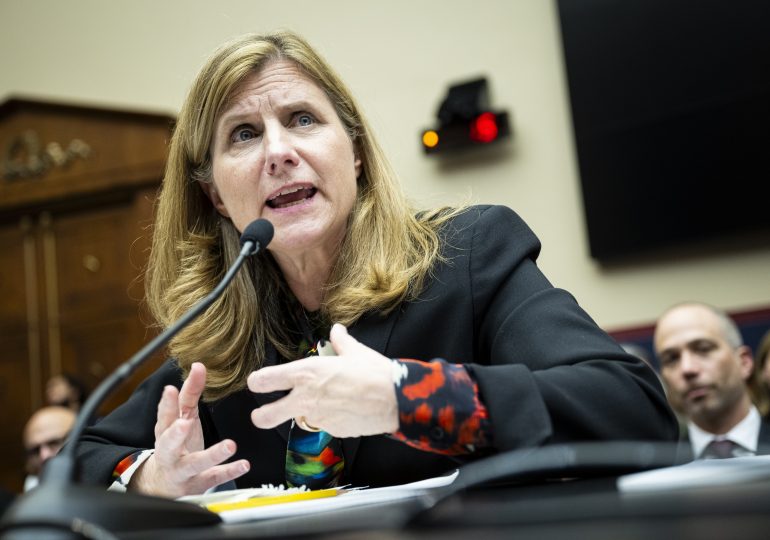The University of Pennsylvania has lost $100 million in funding after the school’s president testified about antisemitism on college campuses during a Congressional hearing on Tuesday.
In a letter, shared online by Axios, Ross Stevens, CEO of a financial services firm, said he was “appalled” by university president Liz Magill’s comments in Congress.
[time-brightcove not-tgx=”true”]
Magill was one of three college presidents called in front of Congress to testify how their respective school boards have handled a rise in antisemitic on-campus incidents amid the Israel-Hamas war. There has been an increase in the number of incidents reported by students following Hamas’ Oct. 7 attack against Israel.
Alongside Harvard University’s Claudine Gay and the Massachusetts Institute of Technology’s Sally Kornbluth, Magill appeared before the House Committee on Education and the Workforce to answer questions.
During the hearing, Rep. Elise Stefanik asked the college presidents whether “calling for the genocide of Jews” violates each university’s “code of conduct or rules regarding bullying or harassment.”
Stefanik asked for a yes or no answer, but each president gave a lengthier response. Magill said “if the speech turned into conduct it can be harassment,” adding that the speech would have to be “directed, severe, and pervasive” but is a “context-dependent decision.”
The House Committee on Education and the Workforce announced on Thursday that it was launching an official Congressional investigation following the presidents’ testimony.
Stevens’ donation to UPenn was offered through the form of a limited partnership with Stone Ridge Asset Management units, which gives the university a stake in the income stream of the company. But in order to hold onto that, the university has to abide by Stone Ridge’s own anti-discrimination and harassment practices.
“Mr. Stevens and Stone Ridge are appalled by the University’s stance on antisemitism on campus,” Steven’s attorneys wrote in the letter. “Its permissive approach to hate speech calling for violence against Jews and laissez-faire attitude toward harassment and discrimination against Jewish students” violates policies, the letter clarified.
The funds were used to help the university’s business school create a finance innovation center, according to the BBC.
Stevens’ attorneys signaled that he was willing to discuss the issue further and give the university a chance to change its stance if, and when, there is a new university president. But the retraction of grant money is part of ongoing blowback Magill is facing for her words. The Wharton Board of Advisors, which advises the university, soon after called for a change in leadership.
“In light of your testimony yesterday before Congress, we demand the University clarify its position regarding any call for harm to any group of people immediately, change any policies that allow such conduct with immediate effect, and discipline all offenders expeditiously,” the letter, which was first obtained by the Daily Pennsylvanian, said.
Pennsylvania State Senators Steve Santarsiero and Doug Mastriano have also called on Magill to resign.
Magill responded to the criticism on Wednesday, with a video shared on the university’s website and social media profiles, saying she answered because under the constitution, “speech alone is not punishable.” She said that her response should have touched on the “irrefutable fact that a call for genocide of Jewish people is a call for some of the most terrible violence human beings can perpetrate.”
On Tuesday, two University of Pennsylvania students filed a lawsuit against the school, claiming it became “an incubation lab for virulent anti-Jewish hatred, harassment, and discrimination.”
Meanwhile, during a Thursday interview with student newspaper The Harvard Crimson, Gay apologized for her testimony.
Leave a comment
















